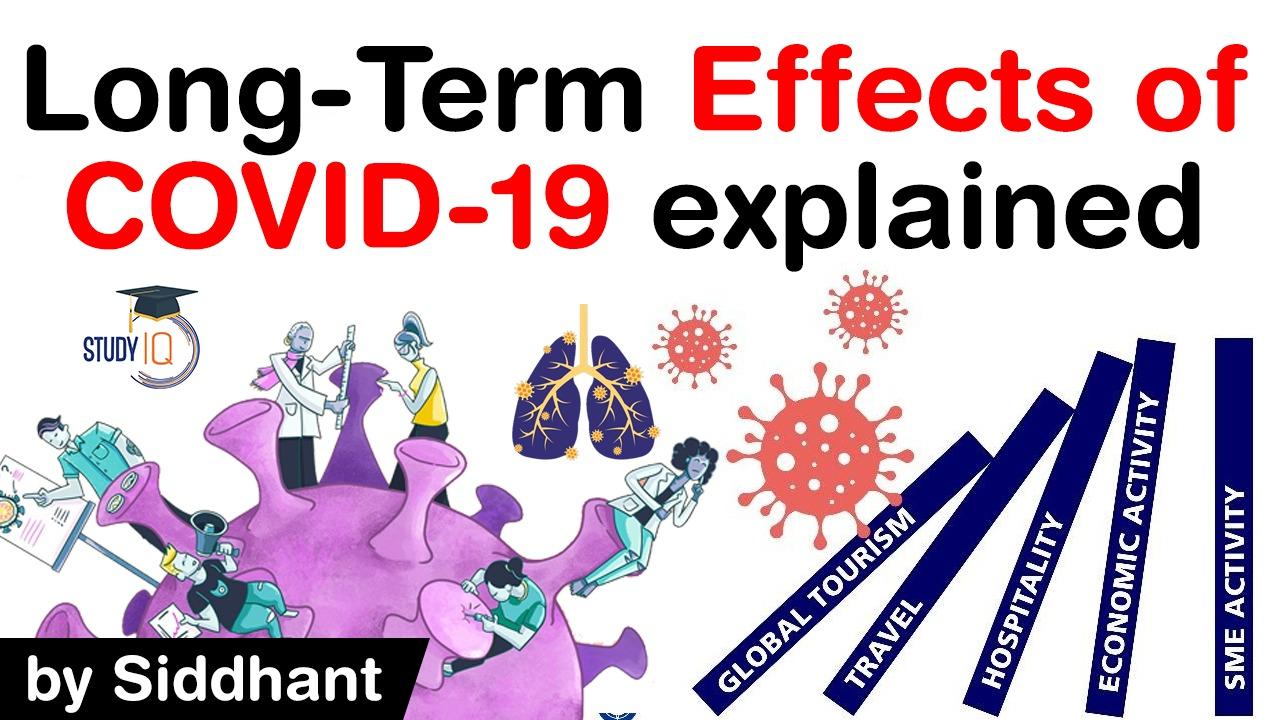Table of Contents
EFFECTS
- Surviving COVID-19 has been only part of the triumph for some patients. While doctors were well aware of the impact of lasting viral infections, the first few months of the pandemic were devoted to preventing transmission and figuring out how to take care of those in hospitals, and not much attention was paid to the after-effects.
- But over eight months into the epidemic, these can no longer be ignored. Though SARS-CoV-2 is essentially a virus that hits the lungs, in a smaller subset, it also seems to have an impact on the lungs, heart and brain, increasing the risk of long-term health issues, and life-threatening complications.
What kinds of complications may occur?
- Gregory Poland, of the Vaccine Research Group, Mayo Clinic, U.S., says: “This is a disease that has a number of mysteries involved, compared to the usual respiratory virus… there is diminution of immunity, long-term fatigue, headaches, vertigo, difficulty with cognition, and cardio-respiratory fitness. But a large portion of that is likely to relate to the significant cellular level damage this disease can cause… This can be a really wicked virus in some people.”
What kinds of complications may occur?
- Among the more common lingering symptoms are fatigue, cough, shortness of breath, headache, muscle and joint pain. In Chennai, doctors who had recovered from COVID-19 to return to work complained of chronic fatigue, besides myalgia (muscle pain) and weakness.
What kinds of complications may occur?
- The Mayo Clinic lists organs that may be affected by COVID-19: Heart: imaging tests taken months after recovery show lasting damage to the heart muscle, even in those with only mild symptoms, increasing the risk of heart failure or other heart complications; Lungs: long-standing damage to the air sacs inside the lungs, leading to long-term breathing problems; Brain: strokes, seizures and Guillain-Barre syndrome that causes temporary paralysis.
What kinds of complications may occur?
- An increased risk of developing Parkinson’s and Alzheimer’s disease is possible; Blood: blood cells are more likely to clump up and form clots. While large clots can cause heart attacks and strokes, much of the heart damage caused by COVID-19 is believed to stem from very small clots that block capillaries in the heart muscle. Blood throwing such clots can affect other organs as well — the lungs, legs, liver, kidneys; Mood disorders: simply surviving this experience can make a person more likely to later develop post-traumatic stress disorder, depression and anxiety.
Does everyone face these side effects?
- The good news, according to the Mayo Clinic, is that most people who have the novel coronavirus disease recover completely within a few weeks.
- Only some people, including even those who had mild versions of the disease, continue to experience symptoms after their initial recovery.
- Even people who tested positive but were asymptomatic during the course of their disease are not immune either from long-term effects.
What are the solutions?
- Countries across the world are beginning to realise the importance of assessing the long-term impact, and exploring solutions to rectify damage. The U.K.’s PHOSP(post-hospitalisation)-COVID project is one of several such projects globally to study patients who have been hospitalised with COVID-19. Over the course of a year, clinical assessments will track 10,000 patients to gain a comprehensive picture of the impact COVID-19 has had on longer-term health outcomes.
- The team will then develop trials of new strategies for clinical care to improve long-term health.
Latest Burning Issues | Free PDF






















 WhatsApp
WhatsApp